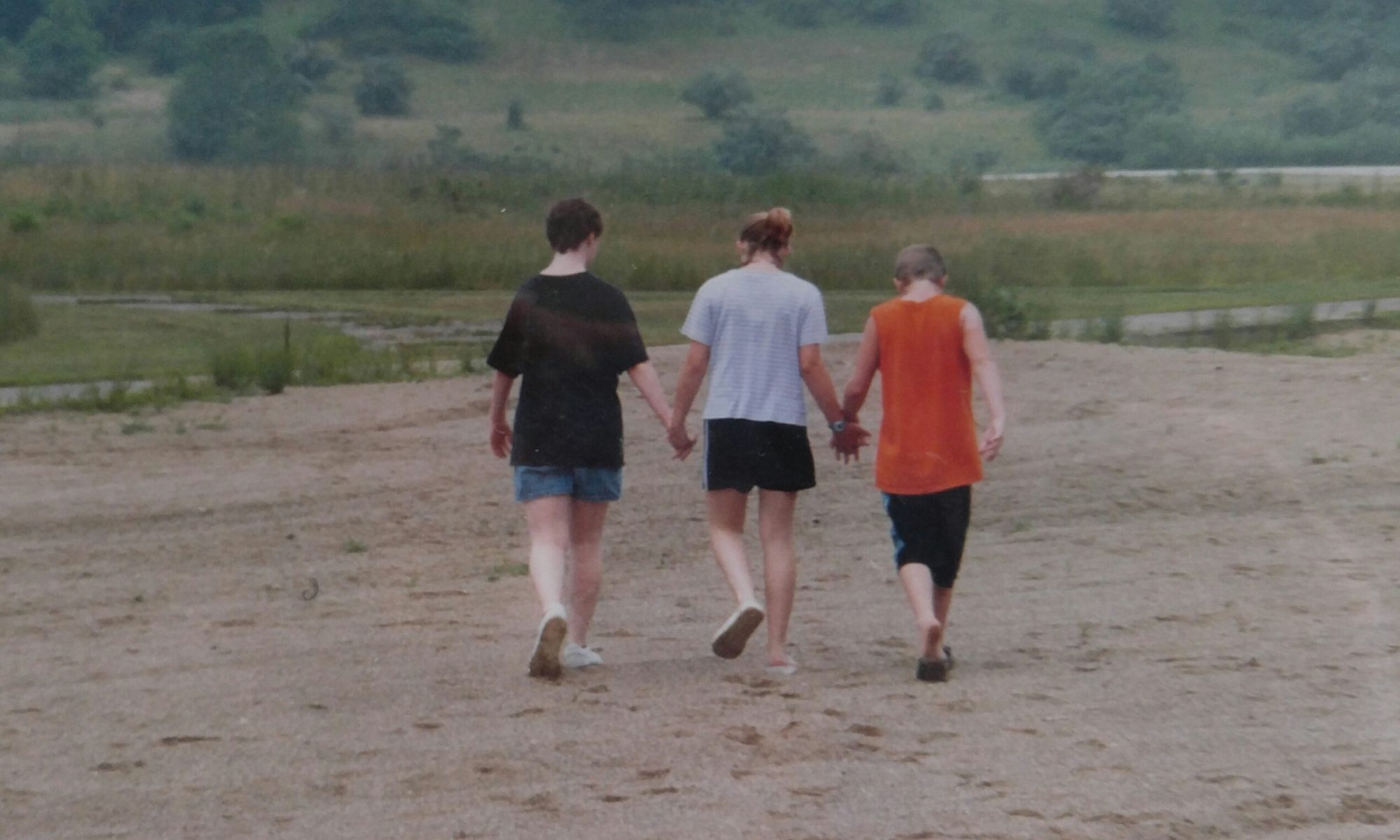If you’ve ever been on a plane, one of the first things you hear is if the oxygen masks come down, put yours on first – you can’t help anyone if you don’t take care of you. It seems like a reasonable plan. But, would I do that? Put mine on before I helped Casey or Rob? Hmmm…. the only reason I’ll say mine goes on first is that Casey and Rob will never be on a plane. 🙂
Honestly, though, I do have a hard time with the whole self-care thing. I know the last several months, especially, I let go of things that I truly love doing because I never seemed to have time. I was busy with both jobs, with Casey and Rob, with helping Mandy and Cory move… I can make all the excuses I want, but the reality is, I have a terrible time taking time for me.
When school finished for the year, I decided that if I was truly going to live until I’m 120 (my goal so Casey and Rob will be close to 100 and will hopefully never have to live without me 🙂 ), I needed to think of me, too. I still struggle with it, but I’ve been reading every day and exercising more. I’ve started doing Yoga again and am trying to eat healthier. I am working on my crafts again and remembering how much I love creating things. Do I feel guilty about this? Yeah, sometimes.
Sometimes, as I pick up my book, I think I should be sending pitches for more writing jobs. I should be calling this person or that one or knocking a chore off of my to-do list (by the way, do chore lists ever disappear? Every time I think I’m catching up, more stuff gets added! 🙂 ) I beat the guilt back by reminding myself a stressed out person won’t live to be 120.
But – it’s not easy to put yourself first. My kids will always be more important to me and it seems there is always something I can be doing with or for them. I could be swinging with Rob or having an endless conversation with Casey. I could be building with Legos or making color by numbers for Casey. We could be practicing with their communication apps. We could be hiking together. And the list goes on.
I’ve burned out a few times in my life. Luckily for me, I just end up an exhausted, crying mess. I don’t have health issues – just emotional ones, so far. And please God, may that continue. The thing is, I know when I’m getting close to burning out. I know that when I crash, I won’t be any good for Casey and Rob. I know I need to take a break and do something for me. I know all of that – and yet, I still don’t always consider my own needs as being that important.
It’s crazy, isn’t it? To know I’m coming close to a meltdown and just keep running towards it. Do any of you ever do that?
I remember one time several years ago that I completely burned out on a Sunday morning. I couldn’t figure out what we needed to do to get ready for church. Really, I just couldn’t think. Thankfully, Casey and Rob are so routine based that they got themselves ready and we made it to church. I saw my parents and started crying. Big, ugly sobbing …. and I couldn’t stop. Casey and Rob went to their class and I sat in an office with my parents and cried. I was so tired, I could have gone to sleep right there. The sad thing? My parents wanted to take Casey and Rob home with them so I could have a break and I couldn’t agree with it. I just kept saying I was fine and I just wanted to go home.
Even in the middle of a breakdown, I couldn’t just say I needed help. I’m nothing if not stubborn. I finally agreed to go back to their house and take a nap.
Don’t be like that version of me. You won’t get any extra points in life for not accepting help. For not asking for help before you burn out. You know what you will get? Gray hair, ulcers, and an unhappy life. Autism is tough, even on the best of days. Ask for help before you burnout.
Self-care really is that important. If you crash, your child will crash, too. It’s that simple. You won’t get a gold sticker by doing it yourself. I know how full your days are. There is always something else that needs done or someone that needs help. It won’t end. Only your attitude can improve. You have got to take care of you. Consider your self-care as important as your child’s care.
The picture with this post? Yes, those are my feet as I lounged by the pool – all by myself. For the first time since I became “Mommy Jen” I went to a pool by myself. If I can learn self care, you can, too!
Find ways to relax and remember what makes you happy. Don’t make excuses about not having the time. If you don’t make the time to take care of you, you will crash and burn – and you will take your child with you.










